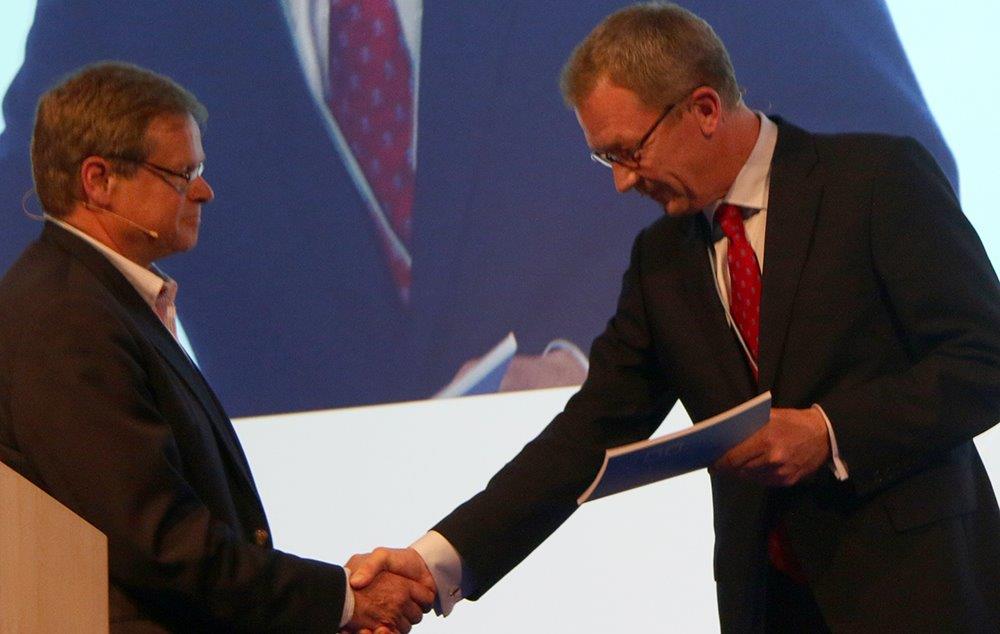
«Roadmap for process industries» handed over to the expert committee on green competitiveness
31 mai, 2016 12:57 Del DelPer Brevik, representing the Federation of Norwegian Industries, handed over the «Roadmap for Process Industries» to Idar Kreutzer, leader of the expert committee of green competitiveness.At the Industry Conference in Oslo on 9 May, the «Roadmap for process industries – increased value creation with zero emissions by 2050» was presented to the expert committee for green competitiveness. Mo Industripark AS has participated in the work through a workshop in Mo, and the report includes two cases from MIP, which exemplify circular economies and how to improve energy efficiency in industrial clusters.
It was the head of the Federation of Norwegian Industries’ climate and energy committee, Per Brevik, who presided over the handover ceremony to Ikar Kreutzer from the expert committee. The roadmap’s vision is for Norwegian process industries to add value to the economy whilst at the same time reducing greenhouse gas emissions to zero. The roadmap describes the possibilities of this vision being achieved but also highlights some of the barriers that need to be overcome. According to Brevik, the committee’s work showed that, if prioritised, we can reach the goal of being a carbon neutral society (in Norway) before 2050.
Kreutzer expressed his expectations with regards to the report and described it as an extremely important piece of work in relation to Norway’s drive to becoming a low-emissions society. He also noted that the roadmap for process industries is the first of seven roadmaps to be completed and delivered to the expert committee, and that many people will look at the work.
Norwegian process industries represent high value creation industries, and have come a long way with regards to improving energy efficiency, recycling and reducing emissions. Low-emission societies need energy-intensive products with low carbon footprints, and it is this type of production that Norwegian industrial companies are best at. This is part of the message conveyed to the expert committee in the report.
Mo Industripark AS is well represented in the report. MIP is used as one of the examples in the chapter concerning access to resources and circular economies. Here it describes work carried out with regards to recycling and the transformation of by-products into inputs in new value chains. In addition, MIP’s work with energy recycling is used as an example in the chapter titled «Clusters and industrial parks». The chapter discusses the benefits to resource utilisation of investing in clusters that contain a large proportion of a process industry and that are densely localised.
For Mo Industrial Park, this is important visibility and recognition of our efforts to becoming a world-class, green industrial park. We will continue to develop through the MIP Sustainability project, and look forward to hearing the expert committee’s recommendations with regards to facilitating industrial clusters like the one at Mo Industrial Park.
Tags: Green competitiveness, MIP Sustainability, Mo Industrial Park, Sustainability, The Federation of Norwegian Industries
Categorised in: Industripark News, On the front page
Del Del